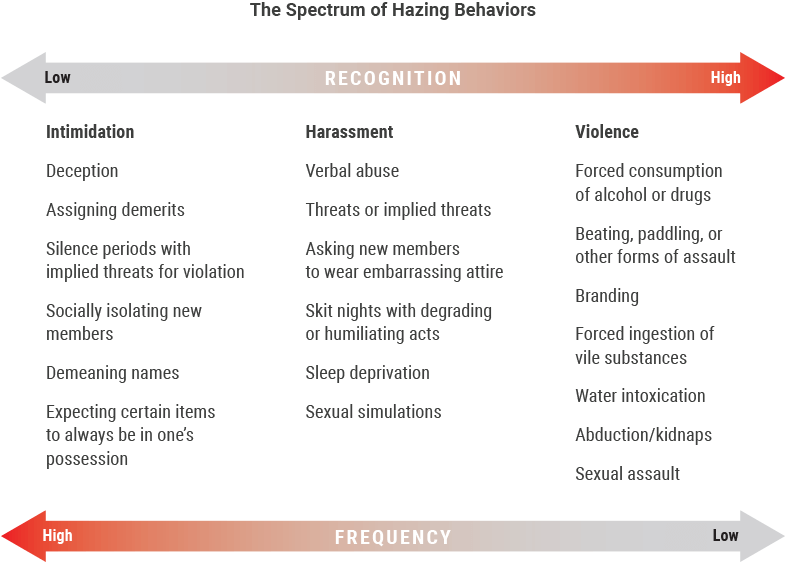
Recognize
Know how to identify hazing.
Prevent
Understand what you can do to help stop hazing.
Report
Know where and how to report hazing.
What is Hazing?
Emory University is committed to the health, safety, and well-being of its students. Hazing can severely impact the educational experience and an individual’s emotional and physical wellbeing. For that reason, the University and the Emory community have an obligation to protect the members of the community from hazing, to assist those who have been hazed, and to hold those individuals and organizations engaging in hazing accountable for their actions.
As defined by Emory campus policy:
Hazing is a broad term encompassing any activity expected of someone joining a group (or to maintain full status in a group) that humiliates, degrades, or risks emotional and/or physical harm, regardless of the person's willingness to participate.
Prohibited behavior may include activities for which the group, team, club, or organization engages in, promotes, or facilitates that negatively impact prospective, active, or new members’ physical and emotional well-being or has no legitimate educational purpose.
Emory Police Department (EPD) Emergency 404-727-6111
If you are in danger due to a hazing incident and/or need to report a hazing incident in progress please contact EPD.

Hazing is prohibited by the University Policy and Georgia Law
Facts and Statistics
Facts
- Hazing occurs in a variety of contexts including sports teams, club sports, sorority and fraternity life, honor societies, student organizations, and more.
- Hazing is about power and control and not team building or group cohesion.
- A significant number of hazing incidents involve alcohol consumption.
- Hazing occurs in middle schools, high schools, and colleges.
Statistics
- 5 million high school students are hazed each year.
- 47% of students came to college already having experienced hazing.
- 55% of college students involved in clubs, teams, and organizations experience hazing.
- Forced alcohol consumption, humiliation, isolation, sleep deprivation, and sexual acts are examples of hazing common across all types of student groups.
- 2 in 5 students say they are aware of hazing taking place on their campus. More than 1 in 5report that they witnessed hazing personally.
- In 95% of cases where students identified their experience as hazing, they did not report the events to campus officials.
- Nine out of ten students who have experienced hazing behavior in college do not consider themselves to have been hazed.
Data taken from the national study Hazing in View: Students at Risk conducted by Elizabeth Allan, Ph.D. and Mary Madden, Ph.D. from the University of Maine. The full report of both the pilot and complete national study are available here: HazingStudy.Org
Emory’s Hazing Prevention Task Force
The hazing prevention task force started in fall 2016 with the goal of amending policy and protocols related to hazing, updating reporting options and response, pinpointing survivor support, developing marketing and educational materials, awareness campaigns, and training opportunities.